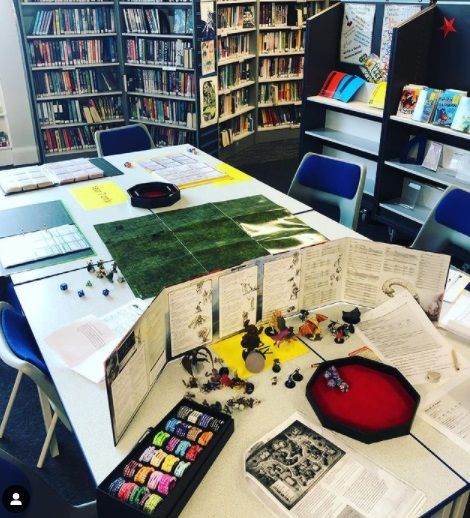Fun D&D Campaign Ideas to Kickstart Your Adventures
Creating D&D campaign ideas from scratch can be exhilarating, fun, and also nerve-wracking. On the surface, there appears to be so much to think about, plan, prepare, and envision. However, in reality, as a D&D Dungeon Master (DM), you do not have to have a 500-page novel laid out before you sit down with your players. Yes, some DMs prefer to have most of their ideas, plot hooks, villains, and encounters all set and ready to go.
However, there are other schools of thought out there that posit it’s better to go session-to-session. This is based on the improvisational nature of the game and the unpredictability of players, if you plan TOO much, as a DM, you run the risk of railroading your players into scenarios that fit your story, not theirs. And it’s important to remember that a good D&D session should disrupt your carefully laid out plans as a DM. You shouldn’t have any idea what they are going to do and will need to act accordingly.
That said, there are some ways for you as a DM to create a framework of ideas that will help you be prepared. You can have a loose set of campaign ideas to get things started. We cover some D&D campaign ideas to get you started before your next adventures!
Start in a Library
As a librarian, I love the idea of starting a D&D campaign in a library. There are a few ways you can go with this. In the world of D&D, there are a couple of libraries that I’ve used extensively: Candlekeep Library (which has its own series of one-shots that are really fun) and The Vault of Sages in the beautiful city of Silverymoon.
You, of course, can create your own library. I made one for our players, which I called “The Revelation.” It was a place where players could have maps made, conduct research on their downtime (for a fee, of course), and meet interesting and strange NPCs.
 Photo courtesy of Lucas Maxwell Photo courtesy of Lucas Maxwell |
To spice things up a bit, you could add a few elements to make it interesting. Perhaps some of the lower-ranking librarians have gone missing, maybe a malevolent force has slyly infiltrated the library and created a portal in the basement archives, unleashing unspeakable horrors that the players have to figure out. And, as the Candlekeep Mysteries point out, you could easily start a campaign around a missing or cursed book or a book with a mysterious author. A library is such a rich place to start your D&D campaign, it can be a welcome relief from the traditional “you start in a tavern” scenario.
Curses and Diseases
I love curses. They generate what is, in my opinion, an essential part of any D&D campaign: the ticking clock. If your players are left to wander aimlessly in the world, yes, they may enjoy it, but there is the risk that they might become bored.
If there is a sense of urgency injected into the campaign via a curse that, let’s say, makes people go insane (you can create your own types of madness and effects; this is the beauty of D&D), or something happens to them physically, they are more likely to be invested in what’s happening. I had a player grow larger every 12 hours after touching a cursed item and failing a Charisma Saving Throw.
In the end, they were 22 feet tall before they were able to stop the effect — not handy when you are trying to be sneaky! If you expand this idea, a curse that has wild, multiple physical effects because of a rogue wizard or corrupted spell book can lead to all kinds of different places. The idea is to have a fun starting point that can create multiple avenues of exploration.
Revenge
I love the idea of a group or sentient being or god exacting revenge on the “human world” of a D&D campaign. An example of this is that Silvanus (the god of wild nature) is done with humans ravaging the world. As a result, druids who are blindly faithful to the god begin exacting revenge on local towns. This could be in the form of destroying farms or logging equipment to start, leaving townsfolk perplexed.
Once the players uncover this thread, it can lead to much deeper, darker things where they must fight off some of the more “enthusiastic” druids while brokering for peace between the two sides. I love this idea because it doesn’t mean that there will be all-out combat, players will have to use their negotiating and roleplaying skills to create a world of balance. This will also create some tough decisions at the table, which, if done right, can be very interesting and fun.
I hope these D&D campaign ideas are helpful in starting your game. In my opinion, the most important thing to remember as a DM is to give players the freedom to explore and develop their characters. It’s their story, and if you keep that at the forefront, they will hopefully remember the campaign for a long time after it has finished.
Copyright
© Book Riot
